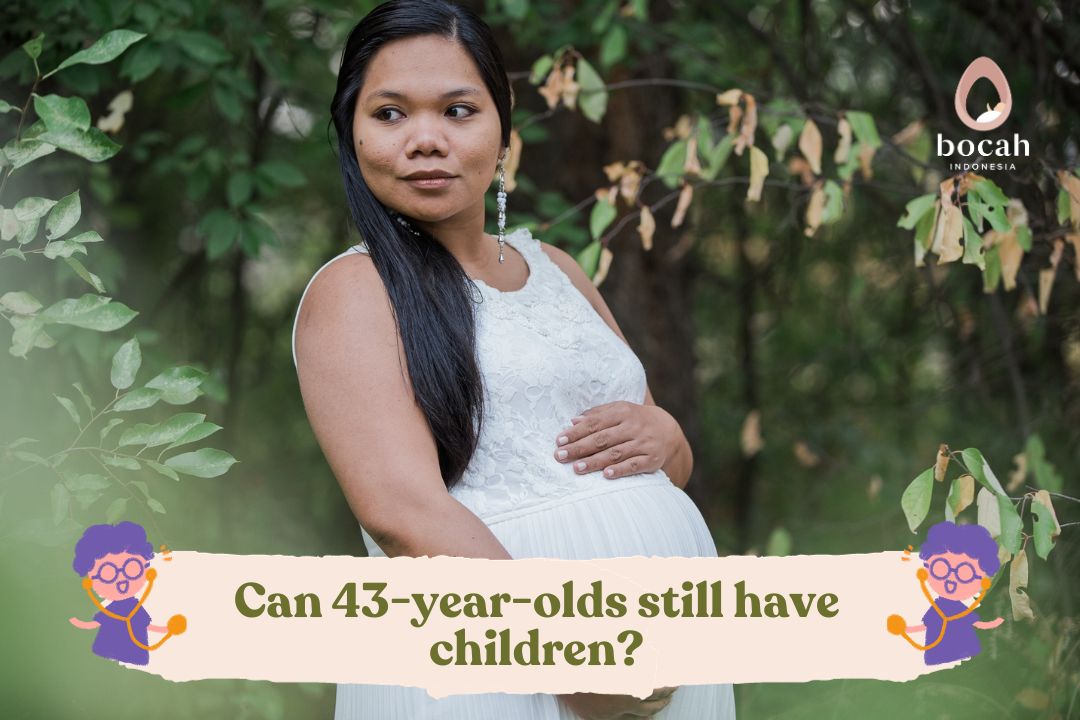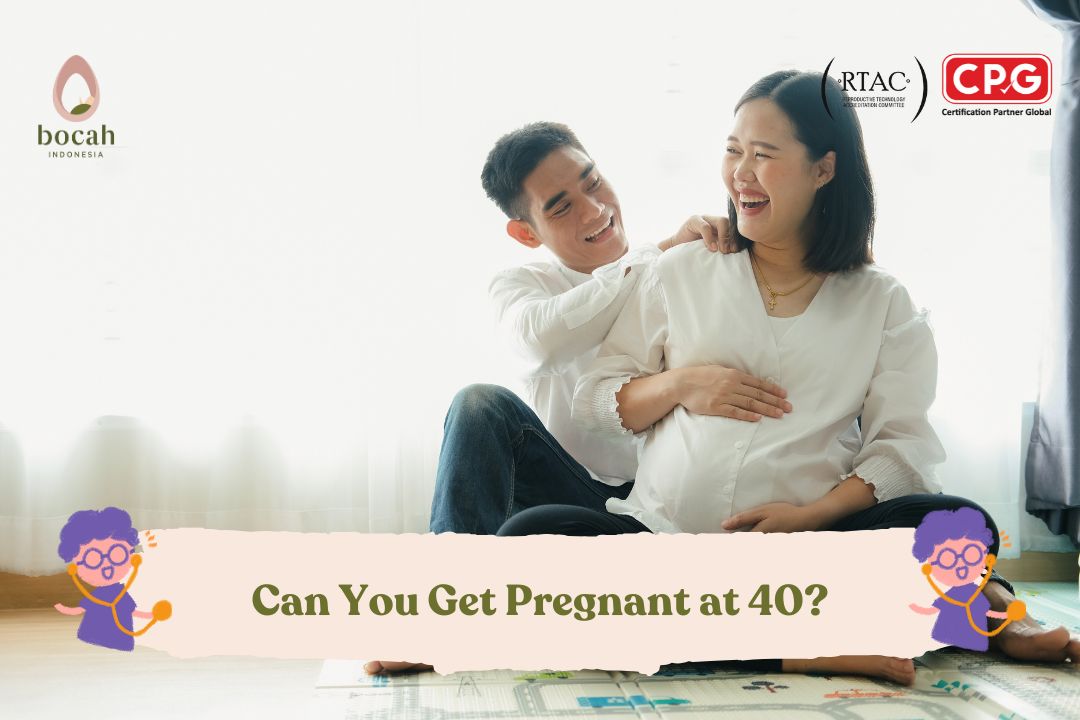At 43, is there still a chance of getting pregnant?

High pregnancy chances are usually experienced by women under the age of 35. However, what are the chances of successfully having a child after the age of 40?
Pregnancy after the age of 40 may be rare. It may happen for some women. In essence, there is no specific right time to get pregnant. However, a woman’s fertility significantly decreases after the age of 35. Nonetheless, it’s not impossible for women in their forties to have a chance of getting pregnant.
Women Aged 43 Can Still Have Children
For women, or perhaps mothers, who have reached the age of 43, there is still a chance of getting pregnant. In this case, only a few out of many succeed in getting pregnant and having children over the age of 40 because there are many risks experienced by pregnant mothers and fetuses.
When you reach the age of 40, the chances of pregnancy also decrease significantly each year.
The likelihood of getting pregnant continues to decline with the increase in age, as a woman’s fertility decreases because the number of a woman’s egg cells also decreases every month.
Tanya Mincah tentang Promil?
Even when women enter menopause, the number of egg cells will be depleted, and their quality will decrease, so there is no more chance of getting pregnant.
Egg cells released at the age of 40 and above may have structural problems, such as chromosomal abnormalities.
Furthermore, being at an older age causes pregnant mothers to experience various discomforts, such as more joint and bone pain due to aging.
In addition, pregnancies after the age of 40 also carry the risk of high blood pressure and gestational diabetes. If you are in this condition, you may also experience increasing fatigue due to your advancing age.
Therefore, getting pregnant under the age of 35 has a higher chance of getting pregnant and lower risks compared to getting pregnant at the age of 40 and above.
What Are the Risks of Pregnancy at the Age of 43?
When mothers become pregnant at the age of 40 and above, they should be careful, as there are several risks of complications that can occur. Some of the pregnancy risks that can be experienced include:
-
Pregnancy Complications
There is no specific prohibition or rule regarding pregnancy at what age. However, when you become pregnant at this age, one of the risks that may be experienced is a doubling of pregnancy complications.
These complications include preeclampsia, gestational diabetes, and high blood pressure during pregnancy.
-
Miscarriage
One of the risks that pregnant mothers may experience when they are over 40 is miscarriage. In fact, the percentage continues to increase to 34% at this age and reaches 53% at the age of 45. This condition can be caused by placenta previa or abruptio placentae.
In addition, fertilized egg cells may have difficulty attaching to the uterine wall, causing miscarriages.
-
Premature Birth
When pregnant at the age of 40 and above, the possible risk is that the baby will be born prematurely. This can lead to low birth weight for the baby because it is not yet mature enough to be born.
-
Genetic Abnormalities
Mothers need to be cautious if they experience pregnancy at the age of 43, as one of the risks that may be experienced is genetic abnormalities. The risk of a baby having Down Syndrome is about 1 in 100 babies. When pregnant at the age of 45, the risk increases further.
The higher the risk of fetal genetic abnormalities, so for mothers who are pregnant at the age of 40 and above, it is recommended to undergo fetal screening. Some fetal examinations that can be performed include amniocentesis, fetal blood sampling (FBS), and chorionic sampling (CVS).
According to the University of Missouri, fetal screening can be done in the early stages of pregnancy or the first trimester. If genetic abnormalities are detected, further tests are needed when pregnancy reaches 16 weeks.
What to Do If You’re Pregnant at the Age of 43?
Women who reach the age of 43 may have a chance of pregnancy, but you need to prepare for pregnancy at an older age.
Your and your baby’s health needs to be maintained by adopting a healthier lifestyle. Therefore, there are several things that can be done, such as:
-
Regular exercise
-
Consume a balanced diet
-
Avoid consuming caffeine, alcoholic beverages, and tobacco
-
Regularly attend prenatal check-ups with a doctor
Based on the explanation above, you can still have a chance of pregnancy at the age of 43. However, please note that there are many risks that pregnant mothers will experience at this age. Make sure to follow the above recommendations.
If you are interested in information related to fertility, pregnancy programs, and more, don’t forget to share this article!
Source:
- The American College of Obstetricians and Gynecolgists. What I Learned From Being Pregnant in My 40s. https://www.acog.org/womens-health/experts-and-stories/the-latest/what-i-learned-from-being-pregnant-in-my-40s
- University of Missouri. Planning a Pregnancy After 40. https://www.muhealth.org/our-stories/planning-pregnancy-after-40 .
- University of Utah. What You Need to Know About Fertility Treatments: After Age 40. https://healthcare.utah.edu/the-scope/health-library/all/2021/10/what-you-need-know-about-fertility-treatments-after-age-40




